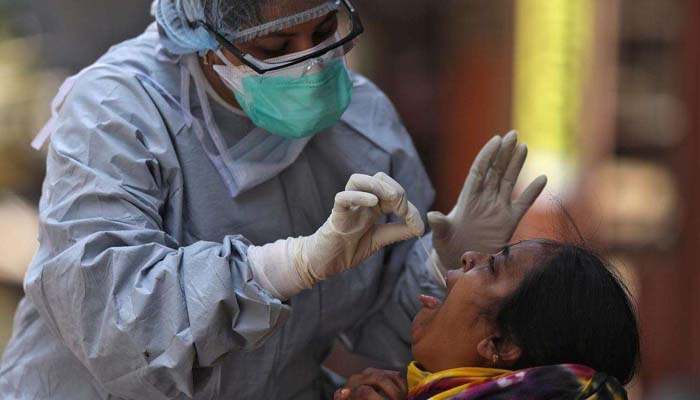New Delhi, January 15:
Amid a nationwide surge in Covid-19 cases, the Election Commission on Saturday will take a call on whether to extend beyond January 15 the ban on election rallies, roadshows and corner meetings in the five poll-bound states.
According to people familiar with the matter, the decision will be taken based on inputs about the spread of coronavirus and its Omicron variant.
On January 8, the commission had prohibited the conduct of any form of mass political gatherings and clamped restrictions for a week in the states of Uttar Pradesh, Uttarakhand, Goa, Punjab and Manipur.
On Friday, the commission met with observers who will be deployed to overlook the procedure of the polls in the above-mentioned states.
Speaking at the gathering here, chief election commissioner Sushil Chandra said that the observers should be vigilant during the elections and should “ensure the conduct of free, fair, transparent and safe elections” as well as strict adherence to Covid-19 guidelines.
Chandra stressed that the expenditure observers need to “sharpen their skills and be innovative in countering newer methods of inducement.”
electoral processes, including postal ballot facility for absentee voters in the category of senior citizens, PwD electors and Covid-19 suspects or affected persons; vigilant for any lapses in Model Code of Conduct and other ECI guidelines.
Covid patients and those who are quarantined will be allowed to cast their vote in the last hour of polling under the supervision of health authorities, the commission had earlier said. Sector magistrates will coordinate this in their allocated polling stations and record of such electors shall be maintained by the presiding officer, it added.
Election commissioner Anup Chandra Pandey, who was also present in the meeting, highlighted the multiple initiatives taken by the ECI, including the identification of low voter turnout booths in the previous assembly elections. While virtual campaigns have been beneficial during the Covid-19 pandemic, the observers need to curtail misinformation and hate campaigns on social media platforms, he said.
The commission, in a statement on Friday, said that considering the ongoing pandemic and enhanced relevance of non-contact-based campaign, it has, in consultation with Prasar Bharti Corporation, decided to double the broadcast/telecast time allotted to each national party and recognised state party of the five states.
The elections for five assemblies in Uttar Pradesh, Punjab, Uttarakhand, Goa and Manipur will be held in seven phases from February 10. The results will be declared on March 10.
Last year, the commission courted controversy throughout the eight-phase West Bengal election, beginning with the prolonged duration of polls to not conceding to the Opposition’s demands to club the last three phases in view of the alarming rise in Covid-19 cases. A police complaint was filed against the watchdog for culpable homicide by the wife of a Trinamool Congress candidate, who died of Covid-19.
Besides Bengal, polls were held as scheduled in Assam, Kerala, Tamil Nadu and the Union territory of Puducherry last year. The commission came under the scanner of various high courts, with the Madras HC saying that poll officials should “probably be booked for murder”. It asked the EC to file a detailed blueprint of measures to ensure Covid-safe counting, which it had submitted.




